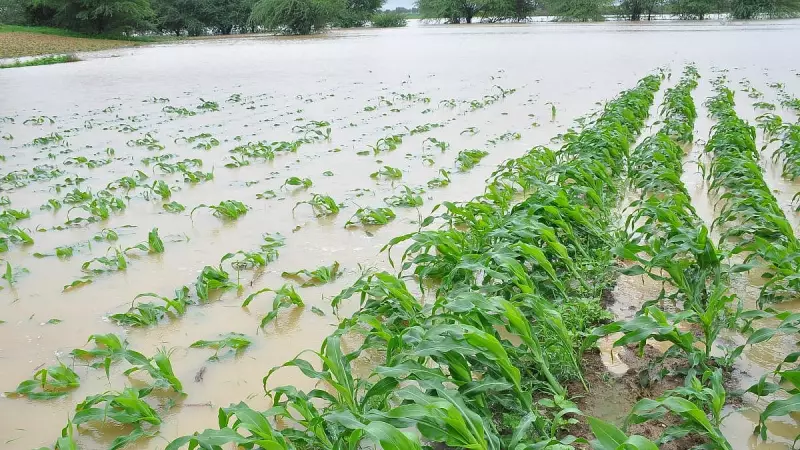
For the second consecutive year, abnormal monsoon patterns have pushed farmers across North Karnataka into a state of complete distress, creating an agricultural crisis that threatens livelihoods and food security in the region.
Back-to-Back Monsoon Failures
The agricultural heartland of North Karnataka is reeling under the impact of two successive years of erratic rainfall. The year 2023 saw a severe 25% deficit in rainfall during the critical monsoon months, following already poor precipitation patterns in 2022. This double blow has left farmers struggling to recover from one disaster only to face another.
Major districts including Belagavi, Vijayapura, Bagalkot, Raichur, Kalaburagi, Yadgir, and Koppal have been particularly hard hit. The timing of rainfall failure has been especially damaging, with June and July 2023 recording significantly below-normal precipitation - the most crucial months for sowing and early crop development.
Crop Losses and Economic Impact
The agricultural devastation spans across multiple essential crops that form the economic backbone of the region. Farmers report near-total failure of tur dal (pigeon pea) crops in many areas, with other important crops like maize, soybean, green gram, and groundnut also suffering massive losses.
The economic consequences are staggering. Many farmers have lost their entire investment in crops, with some reporting losses exceeding ₹50,000 per acre. This comes at a time when input costs including seeds, fertilizers, and labor have skyrocketed, squeezing farmers from both sides.
The situation has created a vicious cycle of debt, with farmers taking new loans to cover previous losses only to face another crop failure. Many agricultural families now find themselves trapped in debt with no visible means of escape.
Ground Reality: Farmers' Plight
Across the drought-affected regions, the human cost of this agricultural crisis is becoming increasingly visible. Many farmers have been forced to abandon their fields and seek alternative employment in urban centers. Those who remain face the heartbreaking sight of withered crops and barren fields.
The psychological impact cannot be overstated. The continuous struggle against unpredictable weather patterns, combined with mounting financial pressures, has created an environment of despair and anxiety in farming communities.
Local agricultural experts note that the region's predominantly rain-fed farming system makes it particularly vulnerable to monsoon variability. Without reliable irrigation infrastructure, farmers remain completely dependent on timely rainfall for their survival.
Government Response and Future Concerns
While state authorities have acknowledged the situation, farmers report that relief measures have been insufficient to address the scale of the crisis. The delay in assessment and compensation has added to the difficulties faced by agricultural communities.
Climate scientists warn that such abnormal monsoon patterns may become more frequent due to changing climate conditions, raising serious concerns about the long-term sustainability of agriculture in the region.
The back-to-back monsoon failures have exposed the urgent need for comprehensive water management strategies, crop insurance reforms, and diversification initiatives to make North Karnataka's agricultural sector more resilient to climate shocks.
As the region stares at an uncertain agricultural future, the plight of North Karnataka farmers serves as a stark reminder of the vulnerabilities inherent in rain-dependent farming systems and the urgent need for adaptive strategies in the face of changing climate patterns.





